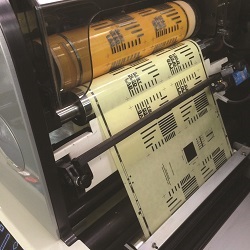On-line quality control for ceramic tiles
The rapid and reliable detection of manufacturing flaws is becoming increasingly important in many production environments in order to maintain a competitive advantage. In the case of ceramic materials, the presence of surface colouration and complex patterns is often such that manual inspection, along with conventional imaging techniques fails to isolate surface or structural defects. The MONOTONE project developed a global control system with state-of-the-art sensors and an intelligent image analysis system to supply the ceramic industry with a centralised and automated management scheme. For this purpose, Università Politecnica delle Marche combined the capabilities of infrared thermography with the adaptation possibilities of ultrasonic testing for this application. Thermal images and ultrasonic signals have several advantages over existing methods used for the inspection of materials and the detection, location and sizing of internal flaws. Importantly, they are completely non-contacting. Thermography uses remote heating of the sample surface and then an infrared camera measures the surface temperature response. Subsurface discontinuities cause gradients in the isothermal contours which are detectable. On the other hand, acousto-ultrasonic techniques are based on high-frequency guided waves introduced at one point and sensed at a different position by an array of air-coupled sensors. Neural networks receive and interpret the frequency rich content in order to evaluate the materials structural integrity and automatically recalibrate the press parameters. The dual scheme provides robustness and redundancy to the inspection. The most important aspect of the system is that quality control can be performed after the pressing process and before the tiles enter the glazing line, leading to less waste. The knowledge gained in the context of the MONOTONE project is likely to be transferred to related sectors involving large-scale printing, such as the textile industry. Developers are looking to provide consulting services and technical assistance to potential partners in order to customise the new system according to their production lines.







